QuickRead - Book Summaries
QuickRead AS
FREE - In Google Play
Philosophy
What’s the meaning of life anyway? Check out our philosophy section to hear theories from the world’s greatest philosophical minds.
Sort By:
alphabetically
most recent
most popular
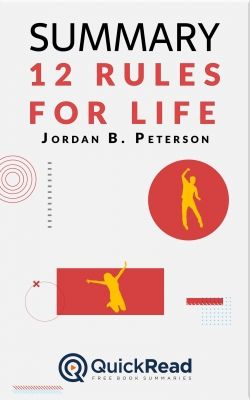
Jordan B. Peterson
Advertised as an antidote to chaos, 12 Rules for Life (2018) assesses humanity’s most pressing concerns through the ages and compiles their solutions in this handy self-help book.
Drawing on psychology, religion, philosophy, literature, and personal experience, author Jordan B. Peterson seeks to eliminate life’s chaos and confusion through the compilation of 12 simple rules that address the deepest questions of humanity. Challenging such questions as, “Why do bad things happen to good people?” and “Why isn’t life fair?” Peterson crafts a solution to truly living our best lives through adherence to his twelve consistent principles.
27 minutes

B.J Miller, Shoshana Berger
The living person’s guide to death.
Have you ever wondered what it would feel like to know that you’re dying? Have you wondered about the thoughts that might go through your mind? What would you think about in your last days? What would you want others to know? How would you want to be remembered? These are tricky questions that occur to all of us as we contemplate death and dying. A Beginner’s Guide to the End (2019) is your personal workbook for addressing those questions.
12 minutes
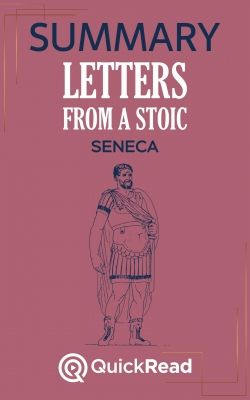
Seneca
How to cultivate the good life according to Roman philosophy.
Today, we treasure the Romans for their advances in art, culture, politics, and philosophy. That’s why so many of their texts survived and why we employ elements of their political practices in our modern form of government. But Letters From a Stoic invites us to remember the Romans as more than dusty relics and engage with ancient wisdom that still has the power to pack a punch in the present. By exploring the writings of the influential Roman philosopher Seneca, Letters From a Stoic offers us the opportunity to connect with Seneca’s insights on some of the fundamental questions of human existence: what “the good life” is and how to find it, how to break free of toxic habits, and how to find peace.
18 minutes
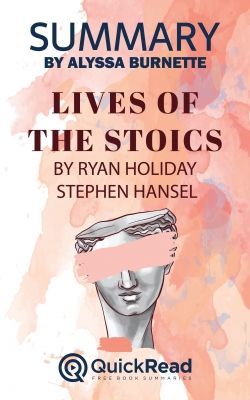
Ryan Holiday, Stephen Hansel
What we can learn from the lives of the great Stoic philosophers.
The Stoics are more than dusty old books and men in togas! Ryan Holiday and Stephen Hansel posit that the lives of the ancient Stoic philosophers can teach us everything we need to know about wisdom and morality in the modern age. Lives of the Stoics (2020) studies the lives of famous philosophers to bring you practical lessons about life and philosophy.
15 minutes

Robert Wright
Learn about the driving forces of your destiny.
As human beings, we constantly question the concept of fate. Does it exist? Is it intentional? Is it responsible for the directions of our lives? Fortunately for us, acclaimed scholar and thinker Robert Wright has pondered these same questions and embarked on an ambitious quest to answer life’s seemingly unanswerable questions. Nonzero (2001) is the fruit of his labor. Positing that human morality has evolved for the better and that we have learned to shape our own destinies, Nonzero is a holistic look back through history.
18 minutes

Maria Konnikova
The Confidence Game (2016) lays bare the psychology behind pyramid schemes, get-rich-quick scams, and every other con artist trick in the book to help us understand why we so easily fall prey to manipulators.
If you’ve ever wondered why we fall for con artists or even why we can be easily manipulated by others in everyday life, The Confidence Game has the answers. Drawing on examples from psychology and history, Maria Konnikova explains why confidence can create a master manipulator or a victim, why we’re attracted to successful people, and what’s wrong with our self-perception.
11 minutes
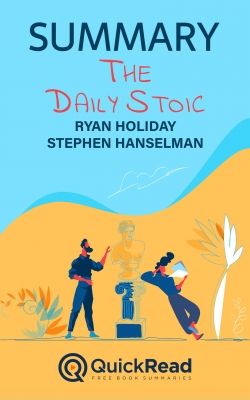
Ryan Holiday, Stephen Hanselman
Life lessons from Stoic philosophy to help you meditate and grow.
We have a lot of motivational calendars filled with inspiring quotes or a cute picture of the “Pug of the Day.” But what if we could take ancient wisdom and boil it down into bite-sized key insights that we could draw from every day? The Daily Stoic (2016) is your summarized guide for exactly that purpose. Curated by acclaimed authors Ryan Holiday and Stephen Hanselman, this guide is an anthology of wisdom from ancient Rome’s most notable philosophers. Incorporating works from some of the greats such as Seneca and Marcus Aurelius, The Daily Stoic is the “who’s who” of Stoic philosophers and provides you with practical action steps for following in their footsteps.
17 minutes
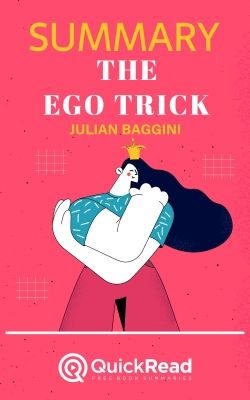
Julian Baggini
What Does it Mean to Be You?
Are you the same person you were fifteen, ten, or even five years ago? What about fifteen, ten, or five minutes ago? What is the real you, and what makes you an individual? Who are you, really? Author Julian Baggini attempts to answer these questions and more throughout The Ego Trick as he takes you on a journey through the history of philosophy, anthropology, sociology, psychology, and neurology. Through real-life cases of lost memory, personality disorders, and more, Baggini aims to answer the questions that have been plaguing philosophers and scientists for centuries. Of course, there is always more to learn, and no one person can answer them all! As you read, you’ll learn whether or not free will exists, how a person might have eleven personalities, and why the existence of a soul is a common belief.
20 minutes
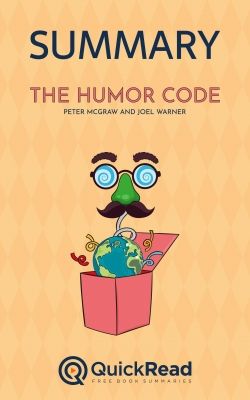
Peter McGraw, Joel Warner
Everybody loves a good laugh, but have you ever wondered why some things are funny and others aren’t?
The Humor Code (2014) embarks on a global search to understand humor around the world and whether certain forms of humor are universal. (Spoiler alert: humor is vastly different around the world!) For this reason, The Humor Code gracefully explores these differences and provides us with some foolproof top tips for acknowledging humor’s cultural differences and how we can be (appropriately) funny.
19 minutes

David Brooks
David Brooks defines the four commitments that lead to a life of fulfillment.
New York Times writer David Brooks describes the first stage of adult life, from your 20s to your 40s, as the “First Mountain”. This period is characterized by establishing your career, building your professional and private life, and establishing yourself. But what happens once you’ve done that? What is your direction after that? This is what Brooks calls the “Second Mountain.
For Brooks this period is about service to others. To your friends, to your spouse, and to your community. This period is characterized by commitments, profession and personal, religious and intellectual. Brooks takes the standpoint of a mentor who has passed into this second mountain, more patient and maybe a little wiser, offering his thoughts and advice.
19 minutes
- ← Prev
- 0
- Next →